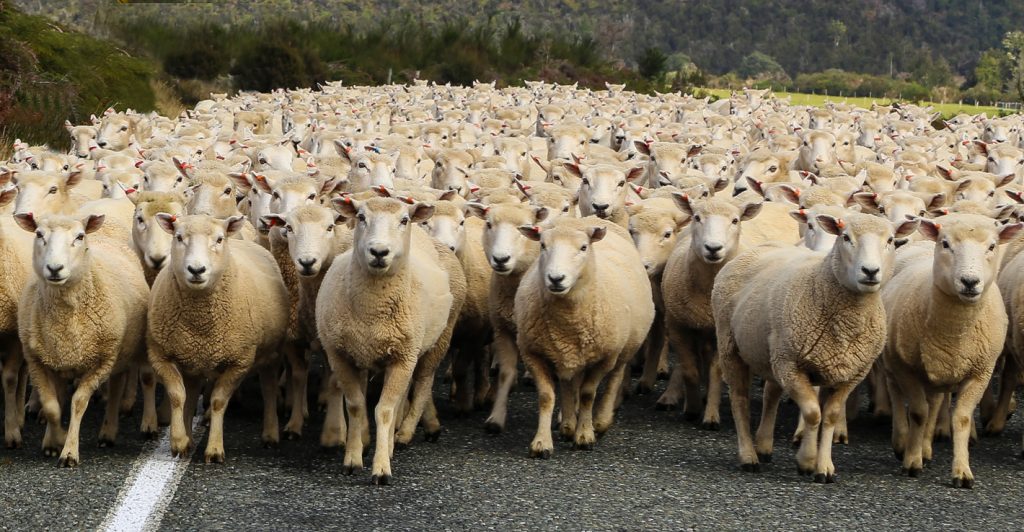My Take: NY Times Major Article ‘Losing Earth’

Nathaniel Rich’s article in the NY Times Magazine begs the question of who we are as a species. (Photo Rona Zevin / iStock)
The opus article in last weekend’s New York Times Magazine by Nathaniel Rich (@nathanielrich) has caused quite a stir and for good reason. “Losing Earth: The decade we almost stopped climate change. A tragedy in two acts” could be read as a requiem for our species. It describes the chain of events, several decades ago, that could have altered our path to climate chaos. It is remarkable journalism and certainly relevant. I think it provides valuable insights.
Rich’s amazing article looks at a single decade of the battle to stave off climate collapse, starting in 1979, somewhat culminating in the famous televised Congressional hearings featuring leading climate physicist Dr. James Hansen. With fascinating detail he tells the tale through various players from the White House, to EPA, NASA, NOAA, the environmental organizations, the oil industry, the scientific community, specific members of Congress, etc. Rich makes a solid case there was ALMOST full recognition of the imminent climate catastrophe with a plan to deal with it. He tracks the story with good characterizations of dozens of participants, following the unfolding journey of a singular dogged activist, Rafe Pomerance.
But I have to admit, that the image that keeps coming to mind as I reflect on it is…..sheep. In some ways we are like sheep. They are not the smartest animals on the farm, but that is not the trait that brings them to mind. They are gregarious and social, typically moving as a herd, quite haphazardly. Sure, the topography and supply of grass affects where they roam, but largely they just go with the group seemingly without much wider awareness.
Why do I think of us as sheep-like? — and to be clear, I am including myself in this. Because we tend to cluster in groups or herds. Within our herd we tend to be amiable, taking care of our daily needs. It’s move along, get along. If we are to be socially tolerated and accepted, even those of us who are most concerned about climate change, temper the way we speak out about it. If we are too shrill and obsessive, it is just not socially acceptable. In general, most of us humans want to give information when and where there are receptive ears, where it will not disturb our society too much, causing things to get AWK–WAARD.
Of course all humans are not in a single herd. Even beyond the current left, center, and right political characterization, there are lots of ways to group us. Understandably we tend to congregate with people with whom we find common ground. Certainly, some people are renegades and loners, but they rarely shape the direction of society. But step back with me and look at Americans as a whole, or even the whole of humanity. What are our priorities? Can we see where we are headed?
When you read the story that Rich has assembled, it becomes quite clear that the problem of greenhouse gases altering the atmosphere, warming our atmosphere and ocean, changing weather patterns, storms, rainfall, drought, and raising sea level was well understood. This article picks up the trail in 1979, when Rafe Pomerance stumbles on it. The science was not in question. He documents periods of time when the Republicans and even the oil companies were concerned enough to agree that the problem needed to be tackled for the common good, for the continuation of our species in a suitable environment.
But then self-interest, narrow-mindedness, and short-sightedness set in. What would a strong policy to get off fossil fuels mean politically? With time, corporate executives, attorneys, lobbyists, and investment managers started to see this strictly in terms of what they are paid to pursue: short term profits, stock valuations, and protection of balance sheets. Greed, pettiness, power, and politics took hold. There were sheep herders. Propaganda, rationalization, and pressure points were employed.
Even today the vast majority of people are quite oblivious to the real issues about climate change. Sure, there is some growing awareness, particularly now with record heat, wildfires, and floods. Those of us who are concerned–or perhaps I should say scared and sad– about what is happening may think that most people “get it.” Yet upon honest reflection, I think there is a large portion of the population that are just moving along with the herd, at least with this unprecedented disruptive challenge.
And even where the danger, and the trend is most obvious, such as where the water is rising, we seem to have the strongest instinct not to change. From South Florida to New Orleans, Bangladesh and hundreds of other places that are flooding more and more often, we are resisting reality. Isle de Jean Charles is an extreme example — a small Louisiana community that is visibly going underwater. Federal and state funds will relocate the entire town at a cost of about a million dollars a resident, yet a good many simply do not want to leave. There are dozens of other examples. In any community where the flooding is getting worse by the decade, common sense would tell us to get out of harms way. That means building higher and in many cases planning an orderly retreat. But VERY few of us are willing to do that. We like to stay with our herd, to live in familiar pastures.
As the NYTimes Magazine story makes clear we are now in a new era. No matter what we do, we cannot simply go back to the comfortable benign climate of our childhood and prior generations. Each passing year we slide further down the slippery slope, making the climb back up the slope to safe ground even harder. The article ends on the point that to carry on, humans must have hope. Fair enough. To me, a few points of light remain:
- We do our best when our backs are against the wall. As I noted in a recent post, and in my book, borrowing from Winston Churchill, perhaps this will be our finest hour. It may not be easy or pretty, but maybe this will help us evolve, if not biologically, then perhaps socially. Just maybe the growing realization of heat, fires and flooding will change our priorities. Sometimes things have to get worse, before they can get better.
- Even in the US Congress, there has been recent positive action. Forty-two Republicans and an equal number of Democrats now belong to the Climate Change Caucus. Legislation is being discussed in earnest.
- As Rich’s article mentions nearly all major policy changes have happened when there was organization and political pressure. So wherever you live and vote, make clear to all political candidates that this is important, either directly or as part of a larger organization.

We may have missed the opportunity to stop climate change, but we can still slow it, with the aim to eventually reverse it, though that may be in the next century. Regardless, it is time to stop acting like sheep.
Today there is one nonprofit organization working on the single issue to put a price on carbon dioxide emissions, to create an economic force to get the world off fossil fuels. That group is Citizens Climate Lobby. I strongly recommend you to join them and add your support.
I understand that even sheep can perceive unusual danger, such as a wildfire. They know enough to change course and run, to get the herd out of harm’s way. So should we.
